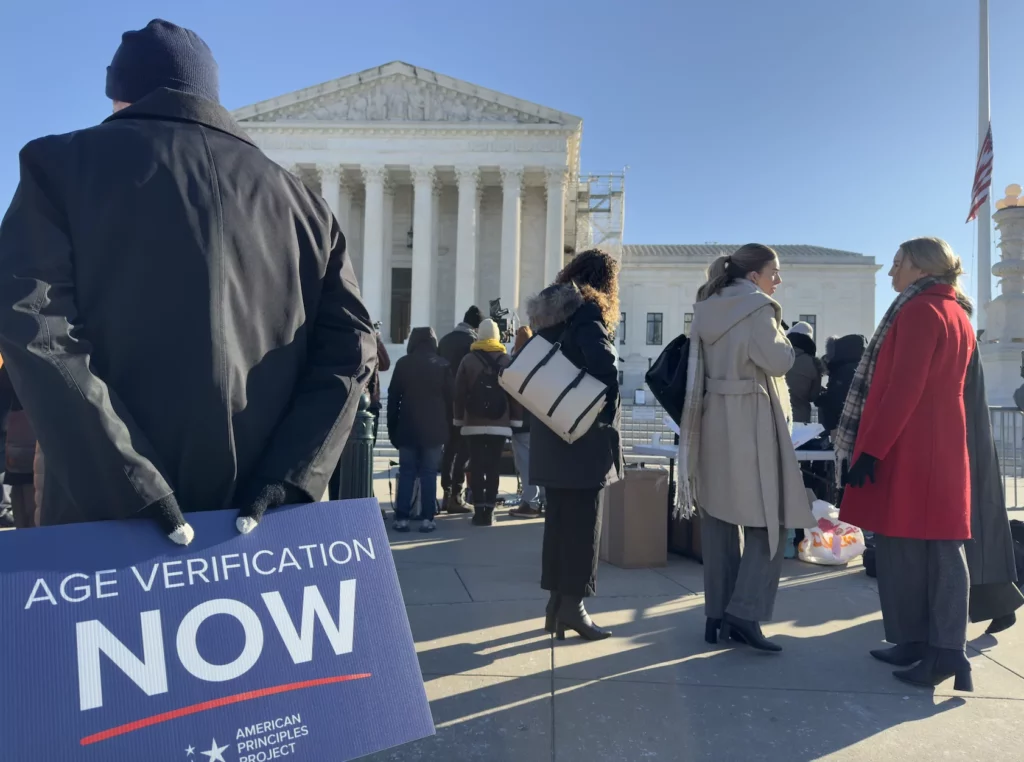The U.S. Supreme Court has heard arguments concerning a Texas law that would mandate any website that contains a significant amount of sexually explicit material to use age verification. Those who oppose the law claim that it would inherently violate adult’s free speech rights on the internet, while many of the Supreme Court justices seem open to upholding the law.
The Texas law states that any website with one-third or more of content that is harmful to minors, must use age verification technology to limit adult access, provide health warnings and prohibit minors from viewing the content. Free Speech Coalition, Inc., a group that represents the pornography industry, has filed the suit.
“I mean, kids can get online porn through gaming systems, tablets, phones, computers … I can say from personal experience, it is difficult to keep up with,” Justice Amy Coney Barret said.
Free Speech Coalition has claimed that the law infringes on individuals’ First Amendment rights and that the use of age-verification technology is an inherent violation of privacy. Similar objections were supported in a 2004 court case Ashcroft v. American Civil Liberties Union.
“Texas’s law is even more problematic than its failed federal predecessors,” Derek Shaffer, the attorney representing Free Speech Coalition, said. “It applies to entire websites depending on whether one-third of their content is deemed inappropriate for minors. It also brands websites with stigmatizing, unscientific so-called health warnings.”
Those in defense of the law argue that the technology capable of doing age verification has improved so dramatically, and pornography use among children has increased so much, since 2004 that the law needs to be modernized.
“Thinking back to Ashcroft 20 years ago versus now, age verification technology has become cheaper — more effective in preventing circumvention. At least that’s what is represented to us,” Justice Brett Kavanaugh said.
Before the court is the decision of whether or not to apply “strict scrutiny,” which would necessitate holding the law to the standard of whether the law serves something that is in the interest of the government, and whether the law is “narrowly tailored” to achieve the interest.
If the court decides to judge the law without strict scrutiny, then it is likely that the law will be upheld, if strict scrutiny is applied then the law’s interpretation will likely go back to a lower court for adjudication. Even if strict scrutiny is applied, however, the law could still be upheld.
So, what are the implications of upholding the Texas law?
First, Texas’s law would, of course, go into effect, making age verification mandated for pornographic sites, meaning technologies like face scans and accessing ID databases would be used whenever an individual would attempt to access a porn site.
Beyond this, it would give an automatic green light to other states to pass similar legislation since legislatures will not have to worry about support from the courts. Thus, age verification mandates would be likely to spread across the country, wherever legislatures are of similar mind to Texas.
Those who oppose upholding the Texas law have argued that it would open the door to more censorship based on what is distasteful to Republicans. However, to supporters, the government would be further empowered to protect children from harmful content — much like how they are empowered to protect children against harmful substances.









